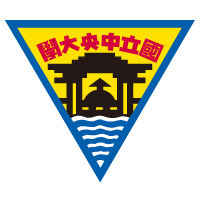Human-Centered Smart Service Lab
Research Field
Dr. Hsiao-Ting Tseng is currently an Associate Professor at Department of Information Management at National Central University, Taoyuan, Taiwan and Guest Editor of several journal Special Issues. Dr. Tseng received the Ph. D. degree from the Department of Information Management and Finance at National Chiao Tung University, Hsinchu, Taiwan. She has also been awarded the Best Paper Award of several IEEE Conferences, ACIS, HICSS and the Young Scholar Fellowship of the Ministry of Science and Technology of Taiwan. Her research focuses mainly on human-robot interaction, smart healthcare, the application and impact of big data and AI on the social networking, and digital transformation. And she is also a member of Future Earth Taipei Working Group on Sustainability in the Digital Age and Secretary General to Taiwan Society of Architectural Medicine .
The Human-Centered Smart Service Lab (HCSS Lab) at National Central University is a leading research center directed by Dr. Hsiao-Ting Tseng, Associate Professor at the Department of Information Management. Our lab focuses on interdisciplinary research at the intersection of technology, human behavior, and service innovation.
At HCSS Lab, we conduct cutting-edge research that explores how emerging technologies like artificial intelligence and big data can be designed and implemented to enhance human experiences and well-being. Our research portfolio spans multiple domains including:
- Human-Robot Interaction: Developing and evaluating interactive systems that facilitate natural and effective communication between humans and robotic technologies
- Smart Healthcare: Creating innovative digital solutions to improve healthcare delivery, patient monitoring, and medical decision-making
- Social Media Analytics: Investigating the application and impact of big data and AI on social networking behaviors and outcomes
- Digital Transformation: Researching how organizations and industries can successfully navigate technological change
Our lab is committed to producing research that is not only academically rigorous but also practically relevant, with real-world applications that contribute to social good and sustainability. This commitment is reflected in Dr. Tseng's involvement with the Future Earth Taipei Working Group on Sustainability in the Digital Age.
Under Dr. Tseng's leadership, our research has been recognized internationally, earning Best Paper Awards at several prestigious conferences including IEEE, ACIS, and HICSS. Our work is supported by grants including the Young Scholar Fellowship from the Ministry of Science and Technology of Taiwan.
We welcome collaboration with academic partners, industry stakeholders, and community organizations interested in advancing human-centered approaches to technology and service design.
Our research at the Human-Centered Smart Service Lab spans several interconnected domains that reflect our commitment to understanding how technology can be designed to enhance human experiences and create meaningful value.
In the field of Human-Robot Interaction, we investigate the complex dynamics between humans and robotic systems. Our work explores how to develop more natural interfaces for communication, design socially intelligent robots for various contexts, including education and healthcare, and understand the psychological factors that influence trust and emotional connection with autonomous systems.
Our Smart Healthcare research addresses the growing need for innovative medical care and wellness management solutions. We develop AI-driven systems for diagnostic support, design and evaluate remote monitoring technologies, and create frameworks for implementing effective telehealth services. Our projects pay particular attention to how data analytics can enable more personalized healthcare while maintaining privacy and ethical standards.
Applying Big Data and AI in Social Networking forms another core research area. We analyze how large-scale data mining can reveal patterns in online social behaviors, examine influence dynamics in digital communities, and develop predictive models for engagement. A critical aspect of this work involves addressing the ethical implications of social media analytics and ensuring that technological advancements respect individual privacy and promote positive social outcomes.
Our Digital Transformation research investigates how organizations navigate technological change. We study business model innovation processes, develop frameworks for implementing digital technologies across various industries, and examine the human factors contributing to successful adoption. This work recognizes that effective digital transformation requires technical knowledge and understanding of organizational culture and human behavior.
These research domains are united by our interdisciplinary approach, which draws insights from information management, computer science, psychology, healthcare, and design thinking. By integrating these perspectives, we aim to create smart services that are not only technologically advanced but also human-centered, ethical, and sustainable.
- Best Paper of HICSS 2025 nominate (2025)
- 2024 Outstanding Research Award (NCU)
- 2024 Research Contribution Award (NCU)
- 2023 Outstanding Research Award (NCU)
- Best Paper of ACIS 2023
- Advisor of Service Science Academic Award (2023)
- Advisor of The sixteenth TSC Thesis Award (2023)
- Advisor of Best Paper Award at Fubon Life Management Doctor and Master Thesis Award (2021)
- Best Paper Award at IEEE Computer Society Technical Committee on Learning Technology (ICALT 2020)
- MOST Young Scholar Fellowship (Ministry of Science and Technology of Taiwan, 2019-03-13)
- Phi Tau Phi Honorary Membership (2018-06-30)
| Ph.D. in Institute of Information Management and Finance, National Chiao Tung University, Hsinchu, Taiwan (Sep, 2011 - May, 2018) |
| M.S. in Institute of Healthcare Information Management, National Chung Cheng University, Chia-Yi, Taiwan (Sep, 2009 - July, 2011) |
| B.S. in Institute of Information Management, National Chung Cheng University, Chia-Yi, Taiwan (Sep, 2005 – June, 2009) |
